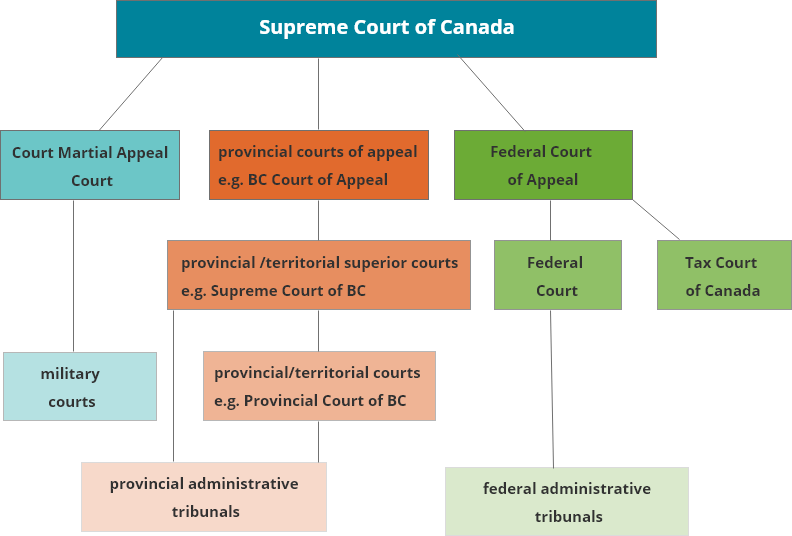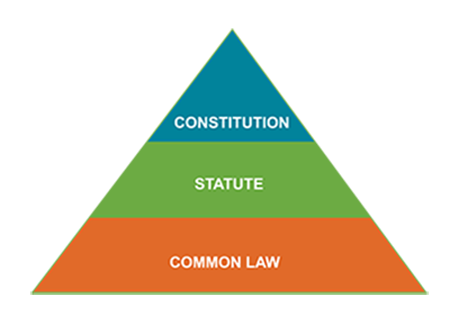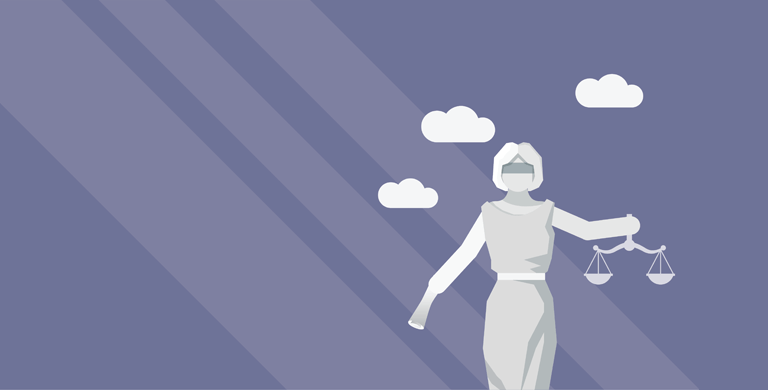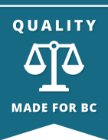The Court System
Welcome to Courts of British Columbia (BC)! This site will help you learn about the justice system in Canada and more specifically about BC.
In BC there are three main courts: Provincial Court, Supreme Court, and the Court of Appeal, similar to other Provinces in Canada. The provincial court structure is only a portion of the overall court system of Canada. See the map below for an overview of the Canadian courts system.

Courts
In BC, there are three main courts:
![]()
The Federal Courts, Tax Courts and Military Courts do not fall under the BC court system.
- Federal Courts deal with areas of law including, maritime law, intellectual property law, and aboriginal law to a certain extent.
- Tax Courts deal with tax matters.
- Military Courts deal with crimes committed by members of the military. Military courts are different from other courts because they can hold hearings anywhere, including in war zones.
Who runs the Courts?
The provincial and federal governments each have a role in running the courts. See the chart below to see who is responsible for what.
|
Provincial Government |
Federal Government |
|
BC is responsible for:
|
The Federal government is responsible for:
|
Laws in Canada
Judges in Canada use a combination of constitutional law, statute law and common law in their decision-making.
 Constitutional Law: Constitutional law is the supreme law of Canada. All other laws must comply with the Canadian Constitution. Learn more about the Constitution here.
Constitutional Law: Constitutional law is the supreme law of Canada. All other laws must comply with the Canadian Constitution. Learn more about the Constitution here.
Statute Law: Statute law is law written by the government. Both the Parliament of Canada and the BC Legislature write statutes. Statutes are sometimes called “acts” or “legislation”. Statutes are often accompanied by “regulations” which go into the details of how the statute should be applied.
Common Law: Since it is hard to write statutes to cover every possible scenario, the Courts look to common law to fill the gaps. Common law is not written down in any one document. It is a series of past decisions by the Courts. Past decisions are also called “precedent” or “case law”. Judges use common law:
- to understand how to apply or interpret a statute
- when there is no statute on a topic
- when a statute in unclear
While common law is complicated, it can evolve to meet the needs of society as it changes.





